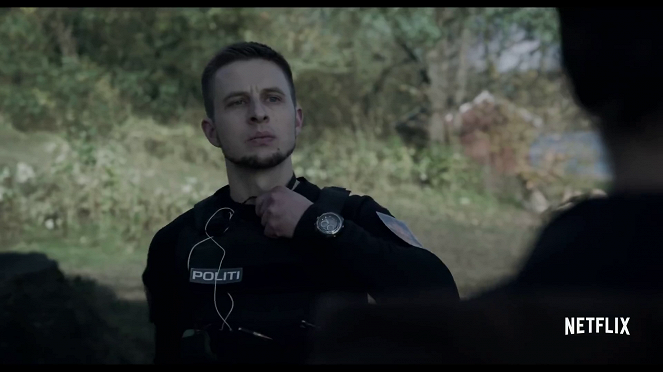Directed by:
Paul GreengrassScreenplay:
Paul GreengrassCinematography:
Pål Ulvik RoksethComposer:
Sune MartinCast:
Jonas Strand Gravli, Thorbjørn Harr, Anders Danielsen Lie, Seda Witt, Lars Arentz-Hansen, Jon Øigarden, Anneke von der Lippe, Øystein Martinsen, Maria Bock (more)VOD (1)
Plots(1)
Paul Greengrass tells the true story of the aftermath of Norway’s deadliest terrorist attack. On 22 July 2011, 77 people were killed when a far-right extremist detonated a car bomb in Oslo before carrying out a mass shooting at a leadership camp for teens. 22 July uses the lens of one survivor’s physical and emotional journey to portray the country’s path to healing and reconciliation. (Venice International Film Festival)
(more)Videos (1)
Reviews (10)
The final interpretation is admittedly pretty one-sided, but on the other hand it's probably fair to admit that Greengrass’ hands were tied in this respect – by which I mean the "political tone" of his adaptation. It bothered me that it didn't go more in depth in the second half, and that the whole courtroom part served primarily to rehabilitate survivors and victims. In short, I feel that such a serious subject deserved a much deeper analysis of the political and social aspects. The opening in Oslo and then the scenes in Utøya are very intense; the rest of the film is unfortunately a bit one-sided. 4 stars by the skin of its teeth. [70%]
()
The attack itself is over and done within the first thirty minutes and it is not as spellbinding as I would have expected, and the rest of the movie shows society trying to come to terms with the tragedy. The traumatised male survivor and his family, Brejvik’s lawyer and his family, Brejvik himself and the court proceedings. For a Greengrass film, 22 July has a surprisingly mechanical, boring narrative that relies on the depth of suffering of a traumatized boy in contrast to the murderer’s shocking serenity founded on his political convictions. There is some sort of message and some merit in its information value, but as for conveying the horror of the tragedy to the audience, its competitor, Erik Poppe’s Utøya: July 22 has the upper hand.
()
In the end it turned out that holding off watching it for fear of being completely shredded when it was over was altogether unnecessary. This time Paul Greengrass didn’t focus so much on the brutality of the attack as on the victims coming to terms with what happened. And also on the absurdity of how the attacker is treated. That's probably what hurt the most in the end. As a drama, it was good, everyone tried hard, but in the end it struck me – I don't know why – as rather superficial. 3.5 stars.
()
Paul Greengrass serves up a dense psychological drama about the July 22, 2011 terrorist attack in Norway that killed 77 people, and he perfectly captures the horror everyone there experienced. There was another attempt this year, from Norway, Utøya: July 22, but that one didn't work very well from my point of view, it's presented in an overly documentary and boring way, no one dies and they don't even show Breivik himself. Greengrass, in contrast, describes in detail how everything took place and literally draws the viewer into the film. The opening explosion and the subsequent merciless murder of the students on the island is excellent (here the director could have spent more time than 15 minutes, but emotionally and psychologically it affected me just the same). I also praise the performance of one of the survivors, Viljar, who survived five gunshot wounds and still has to live with lifelong consequences. The film culminates in a dense trial where emotions are not spared and the hatred towards Breivik is spot on. Solid stuff. 75%
()
Greengrass’s simple interpretation of a terrorist attack and the subsequent events holds a hidden message involving fear of what the world is coming to. Instead of Breivik, it focuses more on a boy, Viljar, riddled with gunshot wounds, his gradual recovery and return to life. The confrontation in court is powerful, with no unnecessary ideological frills. Precise acting performances, powerful supporting scenes (the brain surgery, fitting glass eyes, the final farewell with the lawyer) and the effort to capture reality as precisely as possible are the main highlights of this movie. On the other hand, the endeavor to give every aspect sufficient space means that it lacks a certain complexity. If it weren’t for the excessive length, I would give it a full five-star rating.
()
Gallery (41)
Photo © Netflix



Ads